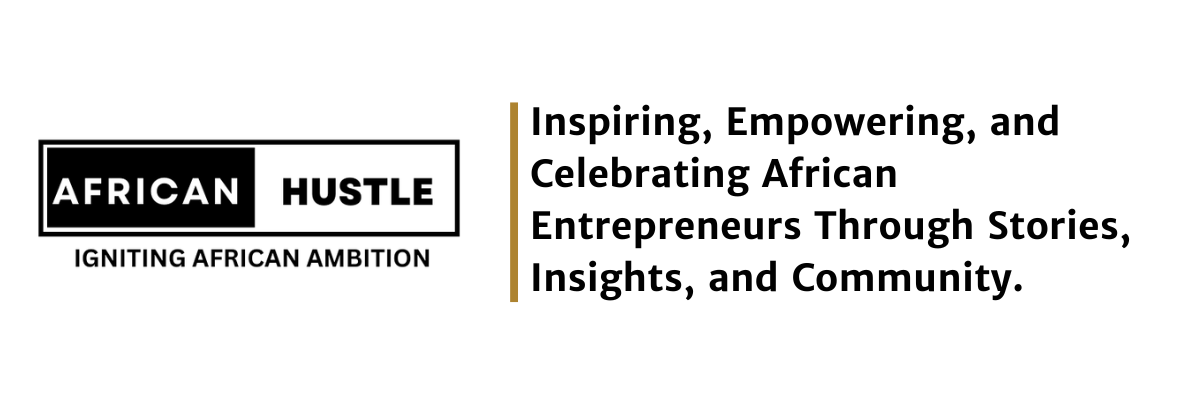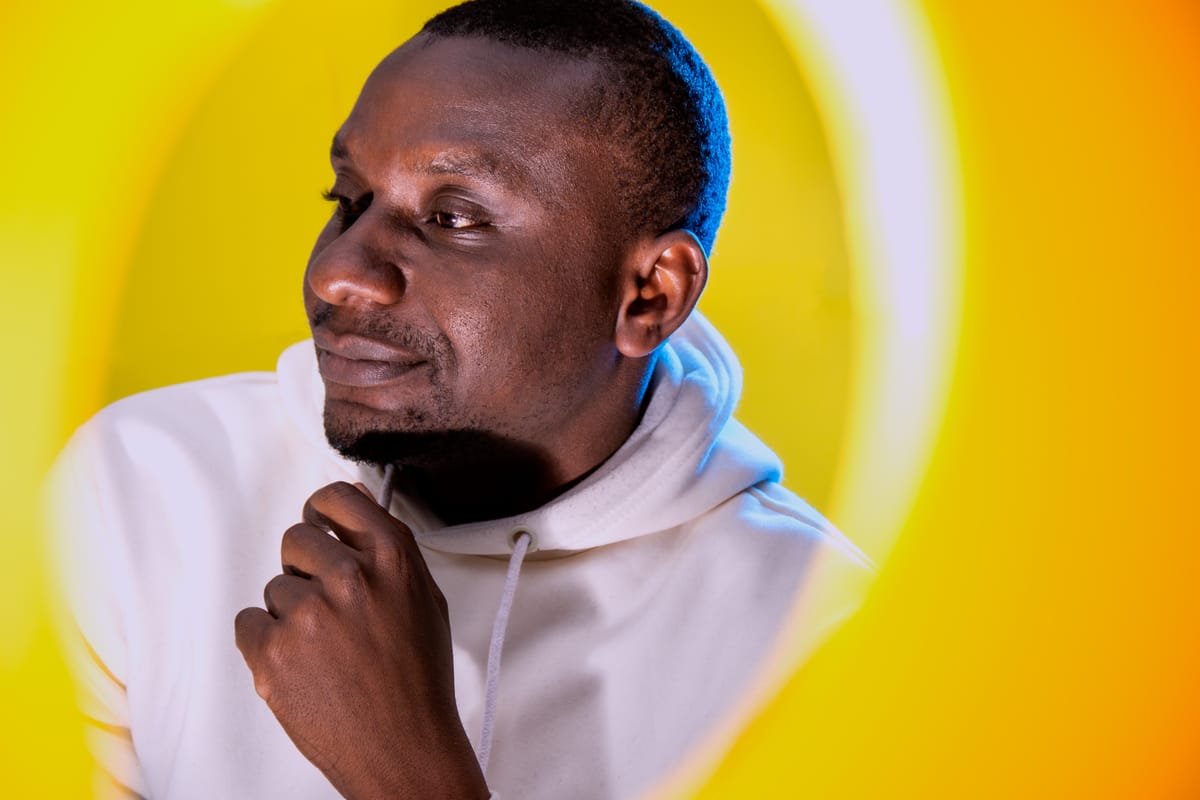
Welcome to African Hustle! Your bi-weekly dose of inspiration and smart insights into African entrepreneurship — featuring real stories about tech, culture, startups, founders, and innovations shaping the future of the continent.

I recently stumbled upon a startling statistic.
Only about 6% of African startups that raised $1 million or more in 2022 were registered in Africa. The overwhelming majority, around 94%, chose to incorporate abroad, primarily in jurisdictions like Delaware, the UK, Dubai or Mauritius.
While I haven’t found definitive published data to confirm or debunk this figure fully, the trend itself is unmistakable.
Why is this happening? Investor preferences for familiar legal frameworks, easier access to capital, and more predictable business environments abroad might be powerful drivers.
Yet, this raises a deeper question.
What does it mean for Africa’s startup ecosystem when most of its high-growth companies are legally anchored outside the continent?
In 2019, Jumia became Africa’s first tech company to go public. It IPO’ed at the NY Stock Exchange at a cool $1.5B valuation.
But Jumia was incorporated in Germany.
It’s headquartered in Dubai.
And its co-founders are French dudes.
What makes a company African to you?
I’m eager to hear your thoughts; my inbox is wide open.

Main Issue
Last week, we missed our regular Wednesday publication. But for good reason.
I was in South Africa, attending the Y20 Pre-Summit, a gathering of bright, bold youth leaders from across the G20, all converging to shape policy recommendations on some of the world’s biggest issues.
I had some meaningful conversations with delegates, a brief but thought-provoking exchange with the Chair of the B20, the business voice of the G20, and the rare privilege of listening to and engaging with Her Excellency Dr. Nkosazana Dlamini-Zuma, a titan of South African leadership and Pan-African vision.
I want to bring you into this room and run down through some issues which resonated deeply with what we advocate for at African Hustle.
Let’s dive in!
Paradox of Plenty
We often describe Africa as a continent of immense natural wealth. It boasts abundant reserves of minerals, oil, fertile land, and other valuable resources.
And yet it remains home to some of the world’s poorest populations.
This is the paradox of plenty.
What’s holding us back?
Factor | Description |
|---|---|
Resource Curse | Resource wealth hinders rather than helps development through over-reliance and volatility |
Poor Governance & Corruption | Elites capture wealth; lack of investment in public goods |
Weak Institutions | Insufficient legal, regulatory, and oversight mechanisms |
Colonial Legacy | Economies structured for extraction, not local development |
Inequality & Exclusion | Growth not equitably shared; social protection is lacking |
Where Does The Hustler Fit In?
Most of us are not mining gold. We are mining solutions.
We often operate in sectors beyond natural resource extraction. You find hustlers in technology, agriculture, manufacturing, and services. Our overarching role is to help diversify African economies, which are currently overly dependent on resources.
As M-Pesa did for mobile money and M-Kopa did for energy access, we likewise need to develop innovative solutions to local challenges.
That’s how we’ll leapfrog broken systems, whether it's unreliable electricity or outdated infrastructure, to create new markets, new jobs, and new possibilities.
The Africa We Want
We share the African Union’s dream of a politically united, integrated continent rooted in Pan-African ideals.
AU’s Agenda 2063 lays out that dream, and one of its cornerstones is the free movement of Africans within Africa. But today, an African still needs a visa to visit 55% of African countries. Only 25% offer a visa-on-arrival.
The African Passport should’ve changed that.
And yet, no country has taken the bold first step.
We cry foul when China excludes Africa from its visa-free list. But over 20 African nations let Chinese nationals walk in visa-free.
We cry about Schengen. About America. About China.
But what about us?
If we can't build bridges between ourselves, why should anyone else take us seriously?
Addressing Inequality
Inequality is a threat to development.
When people lack access to education, healthcare, and capital, they’re locked out of growth.
Entrepreneurs are better equipped than governments to bridge inequality.
It’s our right to be educated, but our responsibility to be skilled. Entrepreneurship is, to a great extent, driven by skill, not education.
And skills are the greatest equaliser to inequality.
What can we do as African hustlers?
Create jobs for the marginalised and overlooked
Serve communities that are neglected by big business
Disrupt old markets and make essential goods more accessible
Share the pie through equity, profit-sharing, and inclusive ownership
Invest in skills that equip others to rise
Build for impact, not just income
Africa pays more to borrow than almost any region on Earth.
In 2023, while Europe and North America borrowed at 2-3%, Africa paid up to 9.8%.
20+ African countries now spend more than 10% of government revenue just to service interest on debt.
Again, in 2023, Sub-Saharan Africa spent more on debt interest payments than on education. And it’s not just education that suffers, but public health, too. Over 30 African countries spend more on debt interest than on saving lives.
Our governments are visiting global loan sharks; our children’s future is the collateral.
Our future has been mortgaged.
In 2024, African governments spent $164 billion on debt service, up from $61 billion in 2010. Why should this figure be alarming? For that same year, Foreign Direct Investment stood at $97 billion. No single African government has yet spent over $1 billion on its own to build its startup ecosystem.
That’s why debt costs are alarming! And that’s why we should start making noise on the need for our governments to curb spending on lavish perks, globetrotting, excessive public sector wage bills, subsidising inefficient State Owned Enterprises and duplicated government structures.
Yet look at the continent so indebted. Africa has:
60% of the world’s solar potential
65% of the world’s uncultivated arable land
30% of global transition mineral reserves
Wind potential 250 times greater than our energy needs
So why are we broke?
We are not poor. We are poorly organised.
Bottom line
We need to be organised.
Our governments don’t have the money to give us!
And our elders won’t give us power unless we demand and fight for it.
High debt. Low trust. Ageing leadership. Empty promises.
No one will give us our place.
Unless we are organised and demand our place, no one will give us a chance.

Opportunity Alert
Blue Economy: A Sea of Opportunities
Africa’s blue economy, the sustainable use of ocean resources for economic growth, jobs, and improved livelihoods, is a vast and largely untapped frontier for entrepreneurs across the continent.
Why the Blue Economy?
70% of African countries are coastal, with over 30,000 km of coastline
90% of Africa’s imports and exports move by sea, underscoring the critical role of maritime trade.
Africa’s blue economy is valued at up to $450 billion annually and could exceed $1.5 trillion by 2050, offering enormous growth potential.
Key Business Sectors to Explore
Fisheries and Aquaculture: Supplying local and international seafood markets, and developing value-added products.
Coastal and Marine Tourism: Eco-tourism, cruise services, and hospitality along Africa’s diverse and scenic coastlines.
Maritime Transport and Logistics: Shipping operations, freight forwarding, and port services to support growing trade volumes.
Ports and Infrastructure: Development and management of ports, warehousing, and logistics hubs.
Marine Renewable Energy: Harnessing wind, wave, and tidal energy for clean power solutions.
Coastal Mining and Marine Biotechnology: Extracting minerals and developing pharmaceuticals from marine resources.
Waste Management and Plastics Circularity: Innovations in marine plastics recycling and pollution control, aligned with rising environmental awareness.
Market Fit: Why Now?
Fisheries and aquaculture ensure food security and nutrition for millions.
Tourism is a high-growth sector with rising demand for sustainable and adventure experiences.
Maritime transport is vital given Africa’s heavy reliance on sea trade.
Environmental sustainability drives demand for marine waste management and renewable energy ventures.
Shipping and Ownership Landscape
Africa’s direct ownership of commercial shipping vessels remains limited.
The majority of vessels ferrying African trade goods are foreign-owned, highlighting a key opportunity for African entrepreneurs to build maritime capacity.
P.S
If this opportunity seems too big, remember how Richard Branson started Virgin Atlantic. After a cancelled flight, he chartered a plane, wrote “Virgin Airlines” on a blackboard, and filled it with stranded passengers. He launched a global airline without owning a plane. You don’t need to own ships or ports to start making waves in Africa’s blue economy.

Proverb Of The Week

𝐖𝐡𝐞𝐫𝐞 𝐲𝐨𝐮 𝐰𝐢𝐥𝐥 𝐬𝐢𝐭 𝐰𝐡𝐞𝐧 𝐲𝐨𝐮 𝐚𝐫𝐞 𝐨𝐥𝐝 𝐬𝐡𝐨𝐰𝐬 𝐰𝐡𝐞𝐫𝐞 𝐲𝐨𝐮 𝐬𝐭𝐨𝐨𝐝 𝐢𝐧 𝐲𝐨𝐮𝐭𝐡.
𝑇ℎ𝑒 𝑑𝑒𝑐𝑖𝑠𝑖𝑜𝑛𝑠, 𝑎𝑐𝑡𝑖𝑜𝑛𝑠, 𝑎𝑛𝑑 𝑣𝑎𝑙𝑢𝑒𝑠 𝑜𝑛𝑒 𝑒𝑚𝑏𝑟𝑎𝑐𝑒𝑠 𝑑𝑢𝑟𝑖𝑛𝑔 𝑦𝑜𝑢𝑡ℎ 𝑤𝑖𝑙𝑙 𝑑𝑒𝑡𝑒𝑟𝑚𝑖𝑛𝑒 𝑡ℎ𝑒𝑖𝑟 𝑐𝑖𝑟𝑐𝑢𝑚𝑠𝑡𝑎𝑛𝑐𝑒𝑠 𝑎𝑛𝑑 𝑝𝑜𝑠𝑖𝑡𝑖𝑜𝑛 𝑖𝑛 𝑜𝑙𝑑 𝑎𝑔𝑒.

Quiz/Trivia
Which country is Africa's largest producer of diamonds, both by value and volume?
Botswana

Local Hero
Meet Wangu Kanja – Nairobi, Kenya

Wangu Kanja, a sexual violence survivor and an activist, set up the Wangu Kanja Foundation to support women survivors of gender-based violence in Kenya. Through her foundation, she has managed to reach over 20,000 survivors to date.

Did You Know?
Africa is the second largest continent (after Asia), covering about one-fifth of the total land surface of Earth.
The continent is bounded on the west by the Atlantic Ocean, on the north by the Mediterranean Sea, on the east by the Red Sea and the Indian Ocean, and on the south by the mingling waters of the Atlantic and Indian oceans.

Founder Insights
Beware of the Vocal Minority Bias
Who are you listening to in your business?
Sometimes, a small, active group within a larger population disproportionately expresses their opinions. Often loudly and persistently, too. All while the majority remains silent.
This usually creates a misleading perception that the vocal minority's views are more widely held than they actually are. But in essence, the silent majority may hold different or more moderate views but chooses not to speak out.
The customers who hate change are always the loudest, while satisfied users stay silent.
As founders, we often rely on customer feedback to guide product development and business strategy. However, if only the vocal minority's opinions are heard, especially when those opinions are extreme or unrepresentative, it can skew our perception of the market. This may lead to misguided decisions, such as overcorrecting for niche complaints or reacting to fake or extreme reviews rather than the broader customer base’s needs.
Reacting hastily to vocal minorities can alienate the silent majority or derail long-term strategy. Instead, founders should use data-driven decision-making, assess the representativeness of feedback, and maintain alignment with their core values and vision to navigate the noise effectively.
Do not let the Vocal Minority Bias distort your understanding of your market and community, leading to poor decisions and missed opportunities.

Billboard
Applications are open!
2025/2026 United Nations Alliance of Civilisations (UNAOC) Youth Solidarity Fund.
Application Deadline: 15 August 2025
The Youth Solidarity Fund (YSF) provides seed funding to youth-led organisations dedicated to fostering peaceful and inclusive societies.
YSF supports projects, designed and developed for and by young people, that demonstrate innovative and effective approaches to intercultural or interfaith dialogue.
Read more here.
Apply here.

#ShoutOut
Spotlight Afua Kyei

At just 36, Afua Kyei shattered a 329-year ceiling to become the Bank of England’s first Black senior executive and its Chief Financial Officer, no less. In the role, the now 42-year-old Oxford Chemistry master’s degree holder and former Barclays Bank Finance Director has overseen the Bank’s handling of Brexit, the COVID pandemic, the 2022 mini-budget and more.
Born to Ghanaian immigrants, Afua has grown to be named the most influential Black woman in the UK.
Enjoyed this post? Share it with someone who might find it helpful and encourage them to subscribe!
If we missed something, we’d love to hear from you — hit reply and let us know what insights you want us to dive into next.
And if this email was forwarded to you, you can sign up here!

